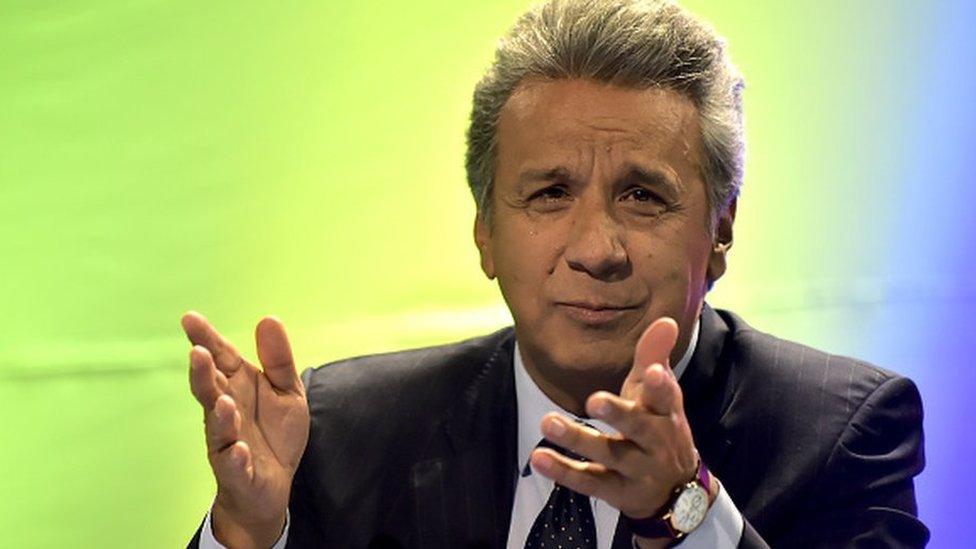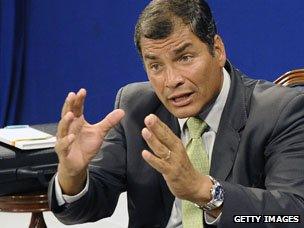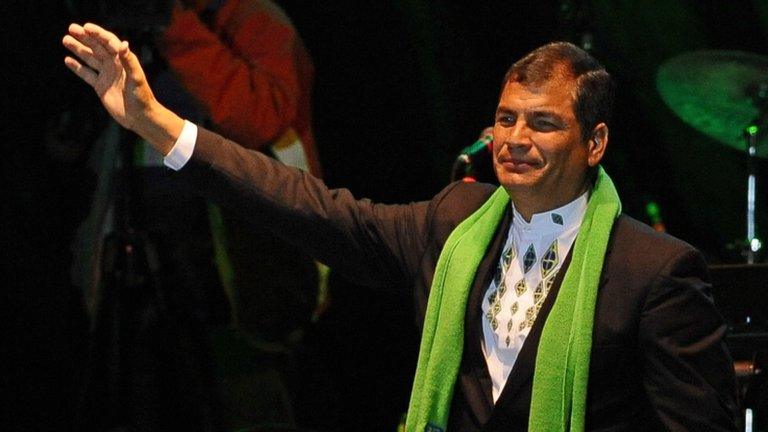Ecuador profile: Leaders
- Published
President-elect: Lenin Morena

Mr Morena campaigned on jobs and higher education access
Socialist candidate Lenin Morena won the 2017 presidential election, coming from behind to defeat the initial conservative frontrunner Guillermo Lasso with just over 51% of the vote.
He will succeed his ally Rafael Correa, whom he served as vice-president in 2007-2013, bucking a recent trend of setbacks for left-wing leaders across Latin America.
It was President Correa who nominated him as the candidate of his Alianza PAIS movement.
Mr Lasso has said he will challenge the result, although Organization of American States observers said they saw no discrepancies in the vote.
Mr Morena has been paraplegic since being shot after being robbed in 1998, and served as the United Nations' first Special Envoy on Disability and Accessibility in 2013-2016.
He has written several books on his philosophy of humour as a path to fulfilment.
Mr Morena campaigned on a programme of boosting employment and expanding higher education opportunities, and takes office on 24 May.
Despite being named after Soviet revolutionary leader Vladimir Lenin, the incoming president has given signs of being less radical and confrontational than President Correa.
President: Rafael Correa

President Correa has mounted a nationalisation drive
Rafael Correa won three presidential elections in a row between 2006 and 2013 on a pledge to carry out a social revolution to benefit the poor.
He was part of the "pink tide" of left-wing populist leaders across Latin America at the start of the 21st century, including Venezuela's President Hugo Chavez and Bolivia's Evo Morales.
He gained approval for a new constitution that allowed him to stand for more than two terms and reduced the political influence of traditional parties.
A former economy minister, Mr Correa boosted public spending and raised the minimum wage, resulting in a significant reduction in poverty and inequality.
But high spending levels and reliance on oil drove the country into a recession that led to public sector lay-offs and a reduction in spending after 2014.
President Correa moved Ecuador away from the economic orbit of the United States, and strengthened ties with China,
His critics often accused him of authoritarian tendencies, noting his highly confrontational attitude towards the independent media and public protests.
- Published27 February 2013
